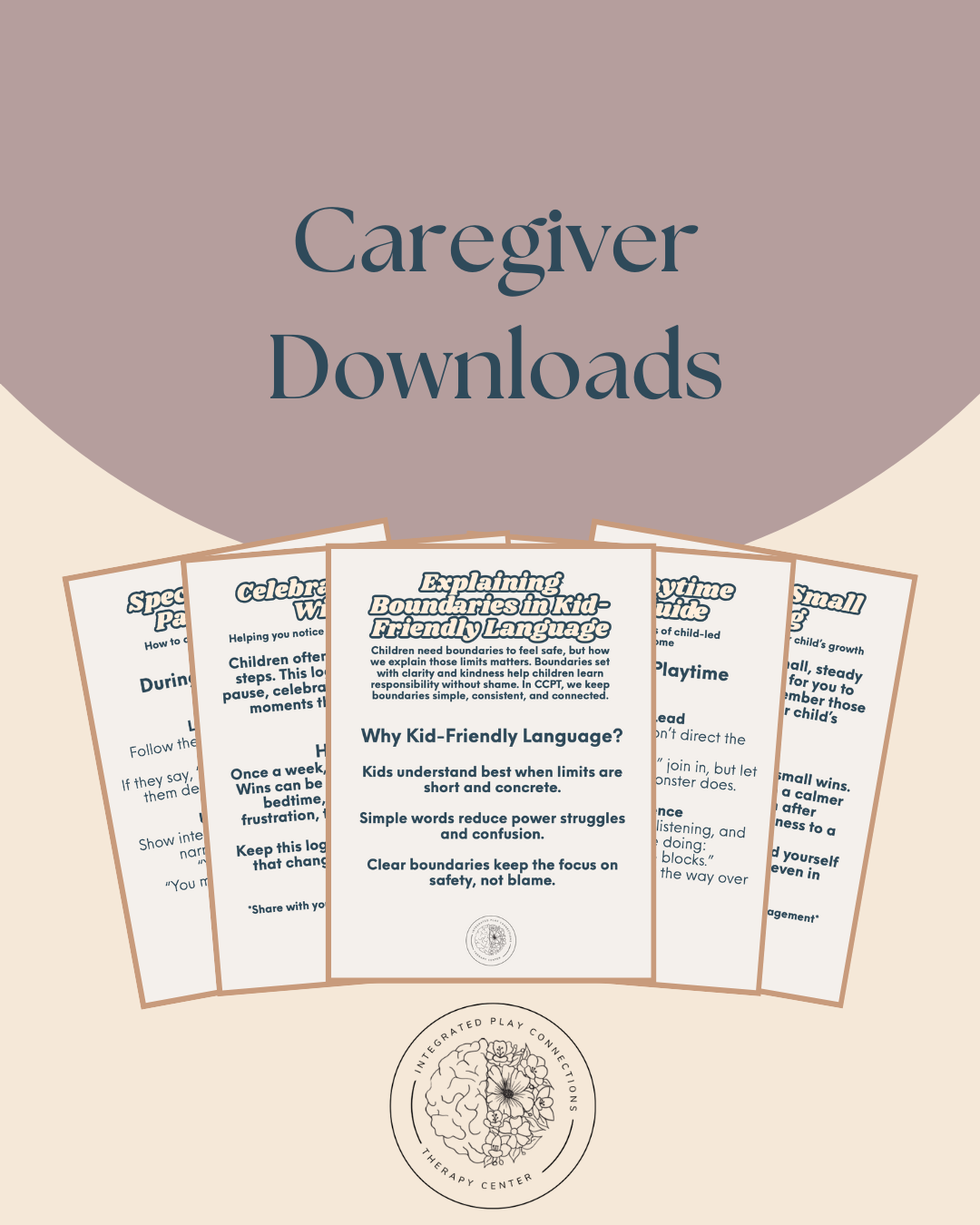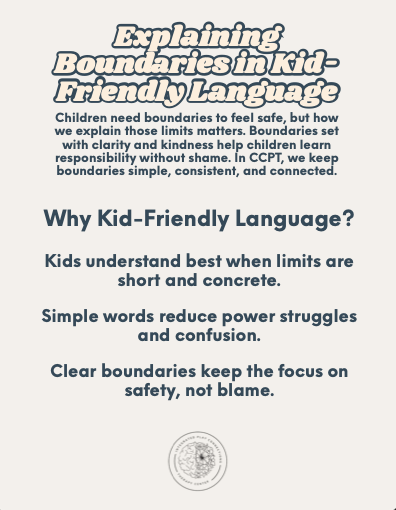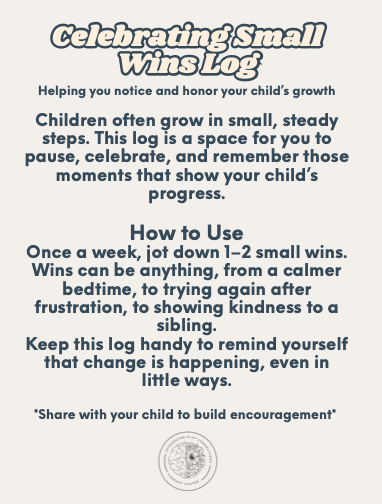 Image 1 of 1
Image 1 of 1


Therapist Tools & Downloads
Resources created to support therapists in reflection, supervision, and CCPT-informed growth.
Caregiver Language Cheat Sheet – CCPT-aligned alternatives to “fix-it” phrases that model reflective, empowering language for caregivers.
CCPT Case Conceptualization Guide – A structured reflection tool for noticing play themes, relationship patterns, and growth through a child-centered lens.
CCPT Self-Reflection Journal Pages – Guided prompts to help therapists pause, process sessions, and stay grounded in CCPT principles.
CCPT Session Reflection Guide – A quick jot-down tool for noting play themes, therapist reactions, and insights for supervision or documentation.
Emergency & Crisis Response in CCPT – Guidelines for addressing safety concerns and disclosures while maintaining a grounded, child-centered stance.
Explaining CCPT to Caregivers – Therapist talking points for describing play therapy’s purpose, process, and progress in parent-friendly language.
Limit Setting with the ACT Model (Therapist Version) – A practical reference for applying Landreth’s Acknowledge–Communicate–Target model with safety and connection.
Parent FAQ with Therapist Responses – CCPT-consistent responses to common caregiver questions, designed to educate while preserving the child’s therapeutic process.
Parent Session Agenda Template – A flexible outline for monthly caregiver meetings that keeps the focus on play themes, growth, and collaboration.
Progress Note Starters (SOAP & SNAP) – Documentation templates with CCPT-aligned phrasing that meet clinical and insurance standards.
Therapist Guide: Explaining Play Themes to Parents – A framework for helping caregivers understand play themes without over-interpreting or reducing their child’s process.
What to Expect: Parent Stages in Play Therapy – Adapted from Guerney (2001), this overview explains the stages of play therapy and how each reflects healing and growth.
Resources created to support therapists in reflection, supervision, and CCPT-informed growth.
Caregiver Language Cheat Sheet – CCPT-aligned alternatives to “fix-it” phrases that model reflective, empowering language for caregivers.
CCPT Case Conceptualization Guide – A structured reflection tool for noticing play themes, relationship patterns, and growth through a child-centered lens.
CCPT Self-Reflection Journal Pages – Guided prompts to help therapists pause, process sessions, and stay grounded in CCPT principles.
CCPT Session Reflection Guide – A quick jot-down tool for noting play themes, therapist reactions, and insights for supervision or documentation.
Emergency & Crisis Response in CCPT – Guidelines for addressing safety concerns and disclosures while maintaining a grounded, child-centered stance.
Explaining CCPT to Caregivers – Therapist talking points for describing play therapy’s purpose, process, and progress in parent-friendly language.
Limit Setting with the ACT Model (Therapist Version) – A practical reference for applying Landreth’s Acknowledge–Communicate–Target model with safety and connection.
Parent FAQ with Therapist Responses – CCPT-consistent responses to common caregiver questions, designed to educate while preserving the child’s therapeutic process.
Parent Session Agenda Template – A flexible outline for monthly caregiver meetings that keeps the focus on play themes, growth, and collaboration.
Progress Note Starters (SOAP & SNAP) – Documentation templates with CCPT-aligned phrasing that meet clinical and insurance standards.
Therapist Guide: Explaining Play Themes to Parents – A framework for helping caregivers understand play themes without over-interpreting or reducing their child’s process.
What to Expect: Parent Stages in Play Therapy – Adapted from Guerney (2001), this overview explains the stages of play therapy and how each reflects healing and growth.






